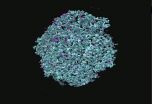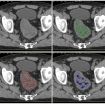Commuting by bicycle: Why the Irish aren't like the Dutch -- yet
2014-11-11
(Press-News.org) Cities around the world are pouring money into beautiful bicycle paths in hopes of convincing citizens to drive less and bike more. According to a new study in the Journal of Public Policy & Marketing, however, getting people to go from four to two wheels isn't quite that simple.
"Although bicycling is a widely accepted way to travel around cities in Germany, Denmark, and the Netherlands," write authors Marius C. Claudy (University College, Dublin) and Mark Peterson (University of Wyoming), "it is still the most underutilized form of transportation in countries such as Ireland, the United Kingdom, and the United States. Specifically, we investigate how consumers' values, attitudes, and reasons for and against bicycling influence their decision to commute by bicycle."
The authors asked people in Dublin, Ireland to list their reasons for and against biking, and found that many participants thought traveling by bike was inconvenient, dangerous, and too hard to deal with in a wet climate--where statistics for Ireland show that biking is actually far safer than walking or driving. Dublin's climate is actually drier than many cities in the Netherlands.
Reasons in favor of biking included saving time and money, improving physical fitness and overall health, doing something positive for their local and world environment, and feeling that they were part of a community of like-minded travelers.
The study shows that the most successful bicycling campaigns will address the public's specific reasons for and against biking and encourage workplaces to provide premium parking, showers, and changing areas for those who bike to work. Social media will play an increasing role in any urban program, with biking-specific weather apps making it easier for commuters to plan routes and perhaps to understand that their city isn't as rainy as they had feared.
The authors conclude by stressing that the most crucial motivating factor may be a commuter's sense of belonging: "Bicycle cultures can impart a special pride about being a bicycler. Such evidenced pride can make the bicycling community more attractive to others in the area. In this way, community-based initiatives can be an effective way to influence people's beliefs and values and to establish a sense of group identification for new cyclists."
INFORMATION:
Marius C. Claudy and Mark Peterson. "Understanding the Underutilization of Urban Bicycle Commuting." Forthcoming in the Journal of Public Policy & Marketing. For more information, contact Marius C. Claudy (marius.claudy@ucd.ie).
ELSE PRESS RELEASES FROM THIS DATE:
2014-11-11
Reserve's borders have erroneously moved 50 kilometers
New species, named after the Luama Katanga Reserve, is now threatened by cattle ranches and forest destruction
NEW YORK (November 11, 2014) - WCS scientists in the Democratic Republic of Congo (DRC) have discovered a new species of plant living in a remote rift valley escarpment that's supposed to be inside of a protected area. But an administrative mapping error puts the reserve's borders some 50 kilometers west of the actual location. Now the new species, along with 900 other plant varieties and 1,400 chimpanzees, ...
2014-11-11
For their study, the researchers were able to fall back on uninterrupted long-term temperature measurements of groundwater flows around the cities of Cologne and Karlsruhe, where the operators of the local waterworks have been measuring the temperature of the groundwater, which is largely uninfluenced by humans, for forty years. This is unique and a rare commodity for the researchers. "For us, the data was a godsend," stresses Peter Bayer, a senior assistant at ETH Zurich's Geological Institute. Even with some intensive research, they would not have been able to find a ...
2014-11-11
Many businesses now offer customers the opportunity to make charitable donations to good causes along with their purchases, but does this really encourage the customer to buy more? According to a new study in the Journal of Marketing, the answer is a firm "Yes."
"The mere presence of a charitable donation opportunity can generate significantly more sales," write authors Michelle Andrews (Temple University), Xueming Luo (Temple University), Zheng Fang (Sichuan University) and Jaakko Aspara (Hanken Swedish School of Economics). "Offering the donation nearly doubled the ...
2014-11-11
When consumers see a company performing good deeds, they often assume that the company's products are healthy. According to a new study in the Journal of Public Policy & Marketing this may be far from true, and the company's socially responsible behavior may be creating a "health halo" over unhealthy foods.
"Research demonstrates that consumers frequently engage in inference making when evaluating food products. These inferences can be highly inaccurate, leading to unintended, unhealthy consumer choices," write authors John Peloza (University of Kentucky), Christine Ye ...
2014-11-11
A novel method of altering a protein in milk to bind with an antiretroviral drug promises to greatly improve treatment for infants and young children suffering from HIV/AIDS, according to a researcher in Penn State's College of Agricultural Sciences.
That's critical because an estimated 3.4 million children are living with HIV/AIDS, the World Health Organization reports, and nine out of 10 of them live in resource-limited countries in sub-Saharan Africa, where effective antiretroviral treatments still are not widely accessible or available. International medical experts ...
2014-11-11
Enterotoxigenic Escherichia coli (ETEC) bacteria are responsible each year for around 400 million cases of diarrhoea and 400,000 deaths in the world's low- and middle-income countries. Children under the age of five are most affected.
ETEC bacteria also cause diarrhoea in nearly one in two travellers to these areas.
Major breakthrough
Researchers at the University of Gothenburg's Sahlgrenska Academy are world leaders in research into ETEC and have now made a major breakthrough in collaboration with colleagues from the Wellcome Trust Sanger Institute in the UK, Karolinska ...
2014-11-11
As football players are learning, a violent blow to the head has the potential to cause mild to severe traumatic brain injury -- physical damage to the brain that can be debilitating, even fatal. The long-term effects run the gamut of human functioning, from trouble communicating to extensive cognitive and behavioral deterioration. To date, there is no effective medical or cognitive treatment for patients with traumatic brain injuries.
But a new study from Tel Aviv University researchers points to an "enriched environment" -- specially enhanced surroundings -- as a promising ...
2014-11-11
Technology developed at the University of Sussex helps hospitals make earlier and more accurate treatment decisions and survival assessments for patients with bowel cancer.
Bowel cancer kills more than 16,000 people a year in the UK, making it the nation's second-most common cause of cancer death (after lung cancer).
A novel medical-imaging technology, TexRAD, which analyses the texture of tumours, has been shown in trials to enable early diagnosis of those bowel-cancer patients not responding to the standard cancer therapy better than other available tumour markers. ...
2014-11-11
Changes to China's drink driving laws are catching the community off guard with more than 70 per cent of people unaware of the blood alcohol limits that could see them face criminal charges, according to new Queensland University of Technology (QUT) research conducted in two Chinese cities.
QUT's Centre for Accident Research & Road Safety - Queensland (CARRS-Q) has partnered with organisations in China to promote road safety and reduce fatalities and injuries, as alcohol-related driving offences are being brought into sharper focus because of the country's rapid motorisation ...
2014-11-11
A new climate change modeling tool developed by scientists at Indiana University, Princeton University and the National Oceanographic and Atmospheric Administration finds that carbon dioxide removal from the atmosphere owing to greater plant growth from rising CO2 levels will be partially offset by changes in the activity of soil microbes that derive their energy from plant root growth.
Soils hold more carbon than all of the earth's plant biomass and atmosphere combined. The new work published by Benjamin N. Sulman, a postdoctoral researcher in the lab of co-author and ...
LAST 30 PRESS RELEASES:
[Press-News.org] Commuting by bicycle: Why the Irish aren't like the Dutch -- yet




